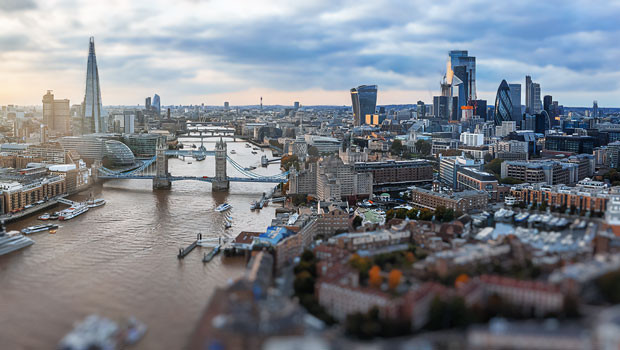London midday: Stocks steady as investors mull GDP figures

London stocks were still flat by midday on Thursday after data showed that the UK economy stagnated in February as strikes dented productivity.
The FTSE 100 was steady at 7,825.30.
According to the Office for National Statistics, there was zero growth, down from 0.4% growth in January and versus expectations of a 0.1% increase. January’s growth was revised up from 0.3%.
Falls in services and production were offset by growth in construction.
The services sector fell by 0.1% following 0.7% growth the month before. The ONS said the biggest contributor to the negative growth in services was education, which fell 1.7% due to teacher strikes. This followed growth of 2.5% in January.
Public administration - which was also hit by strikes - was the second largest contributor, falling by 1.1% in February.
Production output fell 0.2% in February following a 0.5% drop the month before, but construction output rose 2.4% following a 1.7% decline in January.
Paul Dales, chief UK economist at Capital Economics, said: "The stagnation in real GDP in February means the economy probably avoided recession in Q1. But it also increases the chances that the Bank of England will need to raise interest rates further to generate the economic weakness required to reduce inflation all the way to 2.0%."
Investors were also digesting the latest data out of China, which showed that exports unexpectedly spiked in March versus forecasts of a contraction, as the economy continued to recover from its zero-Covid policies and months of falling trade due to lockdowns.
Dollar-denominated exports grew 14.8% year-on-year, after falling 6.8% in January and February and against forecasts of a 7% contraction. Imports fell 1.4%, compared with expectations of a 5% decline.
In equity markets, housebuilders were the standout performers after HSBC upgraded Barratt, Bellway, Berkeley, Crest Nicholson, Persimmon, Redrow and Taylor Wimpey. The bank argued that a downturn in the housing market and tepid recovery in return on invested capital are now priced in.
"We now have greater visibility about the shape of the current housing market downturn for the housebuilders’ profits and cash flows and their recovery from it, which we believe to be more than priced-in to share prices," it said.
Supermarket chain Tesco gained after saying it expects to post flat profits this year and announcing a £750m share buyback as annual earnings fell last year after it absorbed the cost on inflation instead of passing it on to customers. The company said group pre-tax profit halved to £1bn. Retail adjusted operating profit fell 6.3% to £2.49bn.
Tobacco firm Imperial Brands lost ground despite saying it was on track to deliver earnings in line with expectations and low single-digit constant currency net revenue growth.
Burberry was up following solid first-quarter sales from luxury brand LVMH.
Imperial Leather maker PZ Cussons advanced after it backed its full-year expectations and posted a rise in third-quarter revenues as price increases underpinned margins.
Darktrace shares rose as the cyber security firm downgraded its group full-year annual recurring revenue (ARR) guidance but increased its adjusted EBITDA margin expectations.
Oxford Instruments rallied as it said trading for the full year was ahead of expectations.
On the downside, Lloyds, Unite, TP Icap, ITV and Harbour Energy fell as they traded without entitlement to the dividend.